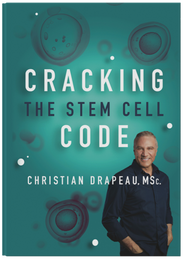You’ve probably heard the saying: You are the average of the five people you spend the most time with. But what if I told you the people around you don’t just shape your personality — they can shape your biology and even your lifespan?
Science is now showing that the people in your life—your partner, your friends, your family, your coworkers, and even your neighbors—can profoundly affect not just your mental health, but how long and how well you live.
Good Relationships = Good Medicine (and Longer Life)
Decades of research confirm that strong social connections are one of the most powerful predictors of longevity.
The famous Harvard Study of Adult Development, which tracked people for over 80 years, found that the quality of your relationships at age 50 is a stronger predictor of your health at age 80 than your cholesterol levels, income, or career success.
“Taking care of your body is important, but tending to your relationships is a form of self-care too. That, I think, is the revelation,” said Robert Waldinger, Director of the Harvard study.
The study found that people with supportive, loving relationships not only live longer but also experience fewer chronic diseases, better immune function, lower rates of dementia, and faster recovery from illnesses or injuries. They found that these healthy relationships enhanced Oxytocin (the love hormone) and reduced stress hormones like cortisol, while inflammation remained in check.
Even in ancient times, Aristotle described humans as “social animals,” wired for connection. He believed friendship was not just a pleasant extra but essential for a good and flourishing life.
Toxic or Shallow Relationships = Hidden Health Threat
On the other hand, toxic, conflict-ridden, or purely transactional shallow relationships may be eroding not only your peace of mind but also your health. Studies show that chronic conflict or social isolation triggers a prolonged stress response, which raises cortisol levels, increases inflammation, weakens the immune system, and accelerates aging.
One study published in Physiology & Behavior found that married couples who engaged in hostile, negative arguments healed wounds 60% slower than couples who communicated with warmth and kindness. Interestingly, the study also revealed that these negative communication patterns more deeply impacted women’s immune systems and emotional health than men’s. These findings highlight how distressed marriages don’t just create emotional strain — they carry long-term health risks, especially for women.
A 2005 study followed over 9,000 British civil servants and found that people in highly stressful or unsupportive marriages had significantly higher risks of heart disease, even after accounting for other risk factors like smoking or obesity. The study showed that constant negative interactions in close relationships (such as criticism, hostility, passive aggression, lack of support, not being “heard” or valued) directly increased the risk of coronary heart disease.
Research has also found that it’s not just negative interactions that impact us; it’s also how stressed the people around us are. A study by Wayne State University found that when husbands experience work-related stress, their wives' cortisol levels—a key stress hormone—increase, indicating that stress can transfer between partners. Notably, this effect was not observed in the opposite direction, suggesting that wives are more physiologically affected by their husbands' stress than vice versa. It’s unclear why this happens; some speculate that husbands are not as observant of their wives' stress as they are of their own.
While having toxic or strained relationships seems to affect your health negatively, “the absence of relationships and close human connections” may be just as harmful. Living without connected relationships isn’t just emotionally isolating — it has real, measurable effects on your physical health. Research from the CDC shows that social isolation and loneliness significantly increase the risks for heart disease, stroke, type 2 diabetes, dementia, depression, and even early death. In fact, a large meta-analysis of over 1.3 million people found that social isolation is linked to a 33% higher risk of all-cause mortality. Simply put, when we have little to no meaningful human connections, our bodies suffer — physically and mentally — highlighting why having nurturing relationships is essential not just for happiness, but for your long-term health.
The Tradeoff of Modern Life: Success Over Human Connections
In today’s society, we’re often sold the idea that career, money, status, working hard, and success are the ultimate goals, and human connection becomes something we squeeze into the margins. But research suggests this trade-off comes at a devastating price.
Psychologist Robert Waldinger, director of the Harvard Study, puts it bluntly: “Loneliness kills. It’s as powerful as smoking or alcoholism.”
People who prioritize wealth, status, or career achievement above all else often face higher rates of anxiety, depression, and health issues — even if they appear to “succeed” by society’s standards. This isn’t just about the ultra-rich; it also includes busy professionals whose demanding careers keep them constantly traveling or working long hours, leaving them isolated in offices, home offices, hotel rooms, and airports, with little time or space to nurture deep, meaningful relationships with their partners, children, family, and friends. Over time, the lack of strong social connections can quietly erode emotional well-being, strain physical health, and leave even the most outwardly successful people feeling empty or unfulfilled. A Princeton study found that, on average, happiness increases with income; however, for the least happy individuals, this increase plateaus around $100,000-$120,000 annually, suggesting that beyond this point, additional income does not solve deeper feelings of unhappiness. This explains why many people who possess the “things” that define success still feel depressed or empty, even when they continue to accumulate more money, possessions, or accomplishments. The research suggests that perhaps they don’t need more “things”, but rather more meaningful relationships.
New research studies highlighted in the APA Monitor on Psychology also expand on this idea and focus on the importance of “friendships” specifically, and how they do more than enrich our social lives — they actually keep us healthy. These studies reveal robust evidence showing that strong, stable friendships are linked to lower stress levels, better mental and physical health, and even increased longevity. One study cited found that simply maintaining close friendships was associated with reduced inflammation, improved immune function, and protection against anxiety and depression. In many ways, strong friendships act like an emotional vaccine, helping to buffer us against life’s hardships while strengthening our inner resilience. These findings suggest that friendship isn’t just a social luxury — it’s a powerful and essential part of our overall well-being.
When Relationships Become Medicine — or Poison
Throughout history and into modern times, some of the world’s most iconic figures have demonstrated — through both triumph and tragedy — just how profoundly supportive relationships can impact your health, creativity, and longevity.
Renowned primatologist and conservationist Jane Goodall, now 91, has openly credited her lifelong and meaningful friendships as a key source of her resilience, energy, and sense of purpose throughout decades of groundbreaking work and global advocacy. Paul McCartney, at 82, continues to tour, collaborate, and surround himself with loved ones, demonstrating that rich connections fuel both creativity and longevity. Even Frank Lloyd Wright, the legendary architect, lived to be 91 and was working up to the end. He credited much of his creative vitality and long career to the passionate relationships he maintained, including collaborations, apprenticeships, and personal ties. He believed these connections and his creative exchanges with them kept his mind and spirit alive.
On the other hand, billionaire Howard Hughes, who ultimately isolated himself in wealth and power, deteriorated in both mind and body, illustrating how extreme disconnection, even when paired with success, can lead to decline. We’ve also seen the toll of isolation or toxic fame on figures like Elvis Presley, Marilyn Monroe, and Anthony Bourdain, whose struggles with loneliness and troubled relationships paralleled their declining mental and physical health.
If you want to protect your health, extend your life, and enrich your days, the message is clear: your relationships are not just part of your social life — they’re part of your healthcare, well-being, and longevity plan.
Could Your Relationships Even Affect Your Stem Cells?
Chronic stress — often stemming from strained relationships or depression from loneliness — has been shown to impair stem cell function, particularly in the brain and immune system. Stem cells are the body’s natural repair system, essential for healing tissues and maintaining resilience as we age, so when their function is compromised, it can speed up the decline of overall health.
In contrast, positive, loving relationships reduce stress, balance hormones, and enhance immune function, creating an environment more supportive of healing. One compelling example of how relationships may influence your body's natural repair system comes from a study published in Physiology & Behavior, which found that wounds healed 60% more slowly in couples who regularly engaged in hostile arguments compared to those who communicated with warmth and kindness.
While direct research connecting human relationships to stem cell activity is still emerging, what we know so far is that the physiological effects of your relationships or the lack of them clearly reach far beyond your emotions. The way you relate to others shapes the overall health of your body and possibly how it repairs itself at the cellular level, making it all the more important to invest in building healthy, supportive relationships.
How to Start Investing in Your Relationships:
-
Build and nurture genuine, loving relationships
-
Prioritize people who support, uplift, and cherish staying connected with you
-
Set not just career goals but relationship goals, so they are valued just as much
-
Let go of shallow status-chasing relationships that drain you
-
Set boundaries with toxic and stressed-out people
-
Spend real, face-to-face time with loved ones and people who feed your spirit
-
Be generous with kindness, listening, and support to grow meaningful relationships
-
Seek out new connections in your community, hobbies, or shared passions
-
Accept that cultivating relationships or making new ones takes time, energy, love, patience, and dedication
The Final Takeaway: Nurture Your Health and Well-Being Through Deeper Connections
In the end, the most profound truth uncovered is that human connection is not just a “nice-to-have” — it’s a health necessity. Your relationships weave through every layer of your being, shaping your mental clarity, emotional resilience, immune strength, and maybe even your innate repair system. While the modern world tempts you to chase status, success, and endless productivity, this approach drowns out your innate need for human connections. Ultimately, the depth, quality, and presence that you bring to your relationships (new and old) is what will offer you the richest rewards. When you invest in meaningful connections, you aren’t just filling your heart — you’re fortifying your health, extending your vitality, and reminding yourself that a truly successful life is one deeply and beautifully intertwined with others.
Discover more wellness and longevity hacks.





